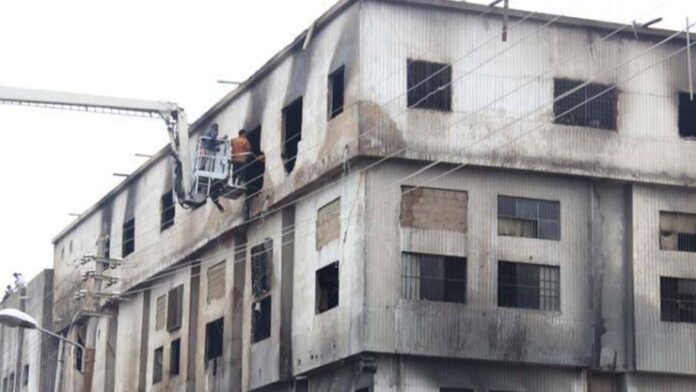Baldia Factory Fire Case
In a significant development in the long-standing Baldia factory fire case, the Sindh High Court recently heard and ruled on the appeals of two members of the Muttahida Qaumi Movement (MQM), Abdul Rehman and Zubair, who had been given death sentences by an anti-terrorism court. This article delves into the intricate details of this case, examining the legal journey of the accused and the quest for justice that has spanned over a decade.
The Initial Verdicts
Abdul Rehman and Zubair, both MQM activists, had their death sentences initially upheld by the Supreme Court of Pakistan. The charges against them included murder, extortion, arson, and terrorism. However, their appeals eventually reached the Sindh High Court, where a division bench presided over by Justice Mohammad Karim Khan Agha delivered its verdict on August 29.
Acquittal of MQM Leaders
In a parallel development, the Sindh High Court also addressed the government’s appeal against the acquittal of four individuals, including MQM leader Rauf Siddiqui, Umar Hasan Qadri, Dr. Abdul Sattar Khan, and Iqbal Adeeb Khanum. These individuals had faced accusations in connection with the Baldia factory fire case. However, the court dismissed the appeal due to a lack of substantial evidence. It’s worth noting that the four defendants who had received life sentences had previously appealed their convictions to the Supreme Court.
Changing Fates of Factory Workers
The initial trial had resulted in life sentences for Shahrukh, Fazal Ahmed, Arshad Mehmood, and Ali Mohammad, all of whom were factory workers and gatekeepers. However, the recent ruling from the Sindh High Court overturned their previous sentences, raising questions about the justice system’s ability to provide consistent outcomes.
Rauf Siddiqui’s Response
Rauf Siddiqui, the leader of the MQM, expressed his dissatisfaction with the verdict and alleged a double standard within Pakistan’s judicial system. Despite the presence of MQM members at the scene of the tragedy, working to save lives, Siddiqui believed that the evidence had been stacked against him. At the time of the incident, Siddiqui held the position of minister of commerce but resigned from his post, vehemently denying any involvement in the incident or its proceedings.
The Baldia Factory Fire: A Tragic Anniversary
This incident, which occurred exactly 11 years ago in 2012, continues to cast a dark shadow over the memories of Pakistanis. A horrific fire at a factory in Baldia Town claimed the lives of hundreds of workers, with a staggering 260 lives lost in the catastrophic blaze. The tragedy not only left families devastated but also raised questions about workplace safety standards and accountability.
Conclusion
The recent rulings by the Sindh High Court in the Baldia factory fire case have added another layer of complexity to a decade-long legal battle. While some individuals have had their sentences upheld, others have been acquitted due to a lack of evidence. The case has also shone a spotlight on the challenges of achieving justice in a system that must balance the rights of the accused with the need for accountability and closure for the victims’ families.
As Pakistan continues to grapple with the aftermath of this tragedy, the quest for justice remains a poignant reminder of the importance of a fair and equitable legal system. It is a call to ensure that those responsible for such devastating incidents are held accountable, while also upholding the principles of justice, transparency, and the rule of law.

